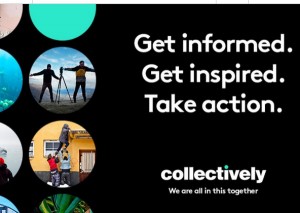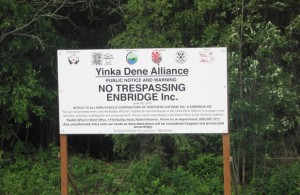From a couple of sources on the 7th of October (2014), a project called ‘Collectively’ was released – a website which ‘celebrates’ and ‘connects’ cutting edge ideas that are ‘shaping the future of sustainability’. This is meant to be a collaboration between major companies such as Coca-Cola, Google and Marks & Spencer – and signals the increased focus on the concept of sustainability in the business world. Apparently, one of the key factors that sets Collectively apart from other different types of collaborations is the fact that multinational companies are behind this project. The home page details the media’s obsession with fear, and that the world is doomed due to humans and their actions. Allegedly, with the companies having ‘put aside their differences’ this promises to be an interesting and informative project, featuring high quality content.
An interesting point to note about this type of news is that while it has something to do with the sustainability aspect of a cooperation, it is difficult to pinpoint any 1 of the 3 ‘stages’ of sustainability that a company is engaged in. This is mainly due to the fact that it is not a production related project, but if one were to really attempt to categorize it, then it would definitely be in the ‘Innovation stage’, simply because this website looks to address some of the ‘big problems’ in society such as society and people’s perspective on our world and our actions, and aims to provide that ‘high quality content’ which was explained in the first paragraph.
This project can technically be very efficient. This is because most companies that have collaborated on this are well known, and it can only serve to boost each company’s image in terms of creating a more sustainability-conscious business. In a way, one could view the 29 companies as having made a ‘good investment’ in terms of brand name and brand image, which can ultimately help them in the long run. At the same time, publicity can be gained via the website, allowing companies to ally themselves with new partners. For the ‘not-so-well-known’ companies out of these 29 such as ‘The Dow Chemical Company’ (which I had never heard of prior to reading this), it can only increase recognition of the organization. This is achieved even without the companies having to advertise about their products, which they clearly specified as ‘having nothing to do with our brands’. In a way, the companies managed to assist themselves without ‘explicitly’ trying to do so. Overall, it seems that as people have started to take sustainability and ethical and social responsibility of companies into account, companies who choose to enter this field like the 29 here could hope for positive results due to this type of collaboration.
Source: Marketing Magazine UK

